MercoPress. South Atlantic News Agency
Tag: Fisheries
-
Monday, February 14th 2011 - 20:41 UTC
Argentine jiggers pleased with current squid season catch levels
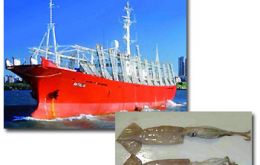
Argentina’s catches of squid (Illex argentinus) are averaging 20 tons per day and there’s no activity outside the country’s Exclusive Economic Zone (EEZ), according to the first landing reports.
-
Thursday, February 10th 2011 - 23:33 UTC
FAO admits illegal fishing remains major threat; calls for a global record of fishing vessels
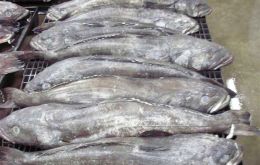
Countries are making progress in implementing the Code of Conduct for Responsible Fisheries, which is now 15 years old, but still extremely relevant. However, additional efforts are needed, declared participants at the close of the 29th session of the FAO Committee on Fisheries.
-
Tuesday, February 1st 2011 - 12:54 UTC
Northeast Brazil to become “tuna hub” with support from Japan

Japan will help Brazil develop a “tuna hub” at the north of the country with the purpose of doubling tuna catches. State of the art Japanese equipment together with Brazilian personnel specially trained to operate the new logistics are at the heart of the ambitious project which plans to turn the north-eastern impoverished state of Rio Grande do Norte into a tuna hub covering an extensive zone of the Atlantic.
-
Monday, January 31st 2011 - 21:21 UTC
Fisheries, aquaculture support livelihoods of 8% of world population, says FAO
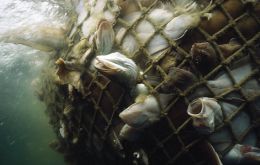
The contribution of fish to global diets has reached a record of about 17 kg per person on average, supplying over three billion people with at least 15% of their average animal protein intake.
-
Friday, January 28th 2011 - 21:33 UTC
Poor Start to Falklands Illex Season
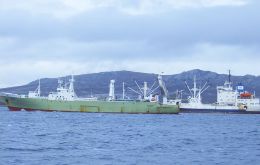
VESSELS fishing for the squid species Illex argentinus in Falklands waters have been reporting poor catches of around two and five ton per day so far this season, confirmed Falkland Islands Fisheries Scientist Alexander Arkhipkin.
-
Friday, January 28th 2011 - 18:24 UTC
Toothfish quota reduced in South Georgia

THE South Georgia toothfish quota dropped from 2800 tonnes to 1800 tonnes this year, with a reduction in the number of vessels from 9 to 6, confirmed the Senior Executive of the Government of South Georgia and South Sandwich Islands (GSGSSI) Martin Collins today.
-
Monday, January 10th 2011 - 06:23 UTC
Argentina: Uncertainty ahead of 2011 squid season
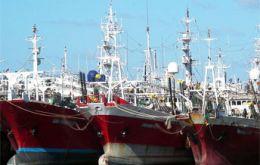
The limited presence of squid (Illex argentinus) at mile 201, outside the exclusive economic zone (EEZ) is of concern to the local squid jigger fleet, which fear that something similar might happen this year in national waters.
-
Wednesday, January 5th 2011 - 00:30 UTC
Argentina: Installation of onboard video cameras begin

The Fisheries Secretariat of the Nation has reported that an Integrated Control System has come into force, which involves the installation of video cameras on board the Argentine fishing fleet.
-
Monday, December 27th 2010 - 08:20 UTC
Chilean Senate drafts bill to combat illegal fishing in Antarctic convergence area
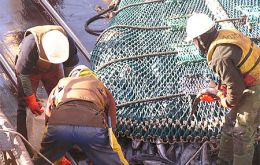
The Chilean Senate Committee on Fisheries approved the project that modifies the Fisheries Law and severe establishes penalties for illegal catches in the Antarctic convergence area. The next step is a vote on the floor that seems secured given the committee’s outcome.
-
Monday, December 27th 2010 - 08:15 UTC
Seafood delicacy with over 10.000 years of history, Chilean abalone
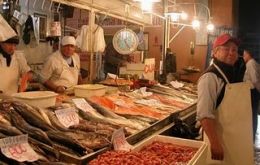
A 19-year investigation by two Chilean researchers confirms that Chilean abalone, known locally as “locos,” have been a staple in the diet for people living near the coasts in this part of the world for at least the past 10,400 years.
